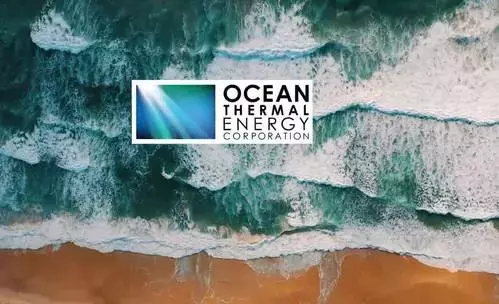The maritime industry is increasingly focusing on sustainability and energy security, with innovative solutions like Ocean Thermal Energy Conversion (OTEC) systems taking center stage. Recently, Ocean Thermal Energy Corporation (OTE Corp) partnered with Johnson Controls to demonstrate the viability of a 17.5 MW OTEC system at the U.S. Army Garrison – Kwajalein Atoll (USAG-KA). This initiative is part of Johnson Controls’ Deep Energy Retrofit Assessment program, aimed at enhancing energy independence for the remote military installation.
The Promise of OTEC Technology
OTEC technology leverages natural ocean temperature differences to generate clean, continuous power and desalinated water. This approach is particularly beneficial for remote locations like Kwajalein Atoll, where traditional energy sources are limited and costly.
Key Players and Their Roles
- OTE Corp: Brings its expertise in OTEC technology and prior successful projects, such as a seawater cooling system for a major resort in the Bahamas and a 7.5 MW OTEC conceptual design for Bahamas Power and Light.
- Johnson Controls: Leads the Deep Energy Retrofit Assessment program, focusing on engineering planning and design to advance energy independence.
- DCO Energy: Serves as the owner’s Engineer for OTE Corp, developing a comprehensive OTEC system design that includes project load analysis, conceptual engineering, and cost estimation.
Benefits for the Maritime Industry
The collaboration between OTE Corp, Johnson Controls, and DCO Energy offers several advantages for the maritime industry:
- Energy Security: OTEC systems provide a stable and continuous power supply, reducing dependence on fossil fuels.
- Sustainability: By harnessing renewable energy from the ocean, OTEC technology aligns with the maritime industry’s commitment to sustainability.
- Resilience: The potential for seawater desalination enhances water resilience, a critical factor for remote military installations.
Future Implications
The successful implementation of the 17.5 MW OTEC system at USAG-KA could set a precedent for integrating renewable energy into national defense strategies. This initiative underscores the transformative potential of OTEC technology, not only for military bases but also for other remote maritime locations.
Conclusion
The partnership between OTE Corp, Johnson Controls, and DCO Energy represents a significant step forward in advancing energy security, sustainability, and resilience in the maritime industry. By leveraging OTEC technology, remote locations like Kwajalein Atoll can achieve greater energy independence and environmental sustainability.
Sources:


Leave a Reply